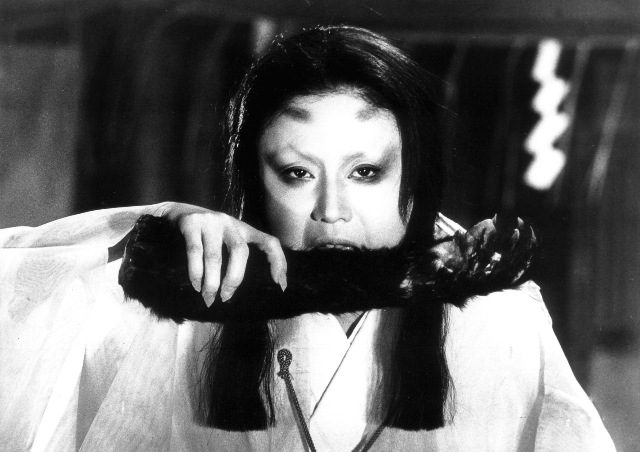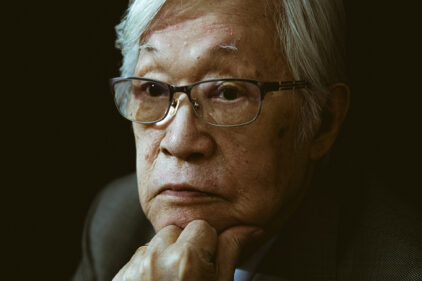For the second in his ongoing series, filmmaker and blogger Scout Tafoya looks at the remarkable Cannes Film Festival of 1968, when the festival came to a screeching halt in the face of real-world upheaval. (Check out his amazing look at Cannes 1960 here.)
The complete transcripts:
Part 1
To most people, the Cannes Film Festival
happened off of movie screens in 1968. It was cancelled midway through
the proceedings when a group of filmmakers led by Jean-Luc Godard and
Francois Truffaut called a stop to the screenings in solidarity with
student protestors in France. Chaos and revolution were in the air. Auto
workers were on strike, the Cinematheque Francais, after the French
government fired its beloved president Henri Langlois, the Vietnam War
was being protested almost as vehemently as it was being fought. It was
inevitable that the turmoil on the streets of France would make its way
into the festival.
Truffaut and Godard saw it as a moral issue. How could anyone want to sit around watching movies when lives were at stake.
To look at the films in competition, we can now ask: Was this the right thing to do? Was cancelling the Cannes
film festival the right way to illustrate the problems plaguing
contemporary life? The films tell two different stories about the year
they were made, and about the state of cinema.
On the one hand it’s easy to look at these films and see a group of directors trying every new trick they could.
Thanks to post-modernism, it seems that there were now no rules or guiding principles for mainstream cinema. Directors like Cannes
alumni Michelangelo Antonioni, Richard Lester, Luis Bunuel, and even
Godard himself had rewritten the book on what was possible.
The fourth wall was broken at whim. Films could be edited at a breakneck, almost subliminal rhythm. Cameras no longer stayed on one side of unfolding action, or kept a respectful, consistent distance from its subject. Intensely wrought dreams and fantasies were dropped into narratives with relative regularity. Editing could become invisible as the limits of shot length were tested. Brand new post-production techniques were being used to stranger and
stranger ends, in an attempt to get further into the minds of
characters.

Now that staging, cutting, writing and shooting had no limits, the
filmmakers in competition set about breaking new ground. Form and
content were stretched in every imaginable direction. Across the board,
new ideas were being tested and the artform was trying to find its feet.
However, exploration was not a strong enough reason for the festival to
be allowed to go on.
But was that the whole story?
The festival was cancelled because there didn’t seem to be any way
that the films playing could be as important as the events unfolding in
France. But if the films had screened, there’s a good chance that the
eyes of a few more could have opened to issues greater than just those
being protested.
Part 2
When the Cannes Film Festival was cancelled
in May of 1968, there was an unspoken understanding that real life
trumped the concerns of the artform. This time, the world had to turn
its gaze away from film screens and towards real life.
What makes this seem heartbreaking in retrospect is that many of the
films due to screen had responded to the political climate of the day
and they now had a limitless canvas on which to paint pictures of modern
life.
Some of the films looked at rape, spousal abuse and the conspiracy of
silence surrounding both acts. They ask bold questions of their
audience: can men act unselfishly if they wield all the power in
society? Can one crime justify the commission of another? If justice for
oppressed women is not guaranteed by law, should it be taken by other
mean?

Some of the films look at the many crimes committed by unchecked
governments. Using parables or thinly veiled stand-ins, filmmakers
filled with indignation or outright fury, show groups of men behaving
appallingly in the name of a faceless greater good. A phantom dinner
party, a shadowy castle or a retirement ball had to take the place of
repressive regimes who may or may not recognize themselves on screen.

Some of the films looked at warfare and its devastating effects. What
happens when combat is ingrained in your unconscious? What does
nationalism and hatred of an entire people do to us? What does it do to
future generations? In these works, the line separating opposing forces is deliberately blurred until it becomes meaningless. The only people
we’re sure of are the victims.
The official story is that the Cannes Film Festival didn’t happen in 1968. Greater things took precedence. Far be it
from me to suggest that the fabric of society didn’t need mending, but
it’s hard not to lament that in the process of fixing it, a group of
fiercely original and socially conscious works of art were swept under
the rug. We’ll never know for sure, but the festival could have provided
one or more of these movies with international attention, saving them
from obscurity. Many of these works are in terrible condition today,
barely screened. Some, have vanished completely and may never be seen by
another audience. Many of the filmmakers never found a foothold outside
their home countries, and their voices and the issues they wished to
shed light on were a little less clear. Shutting down the festival sent
a message that is still remembered today. The films tell their own
story, one that’s rarely heard or remembered today.











